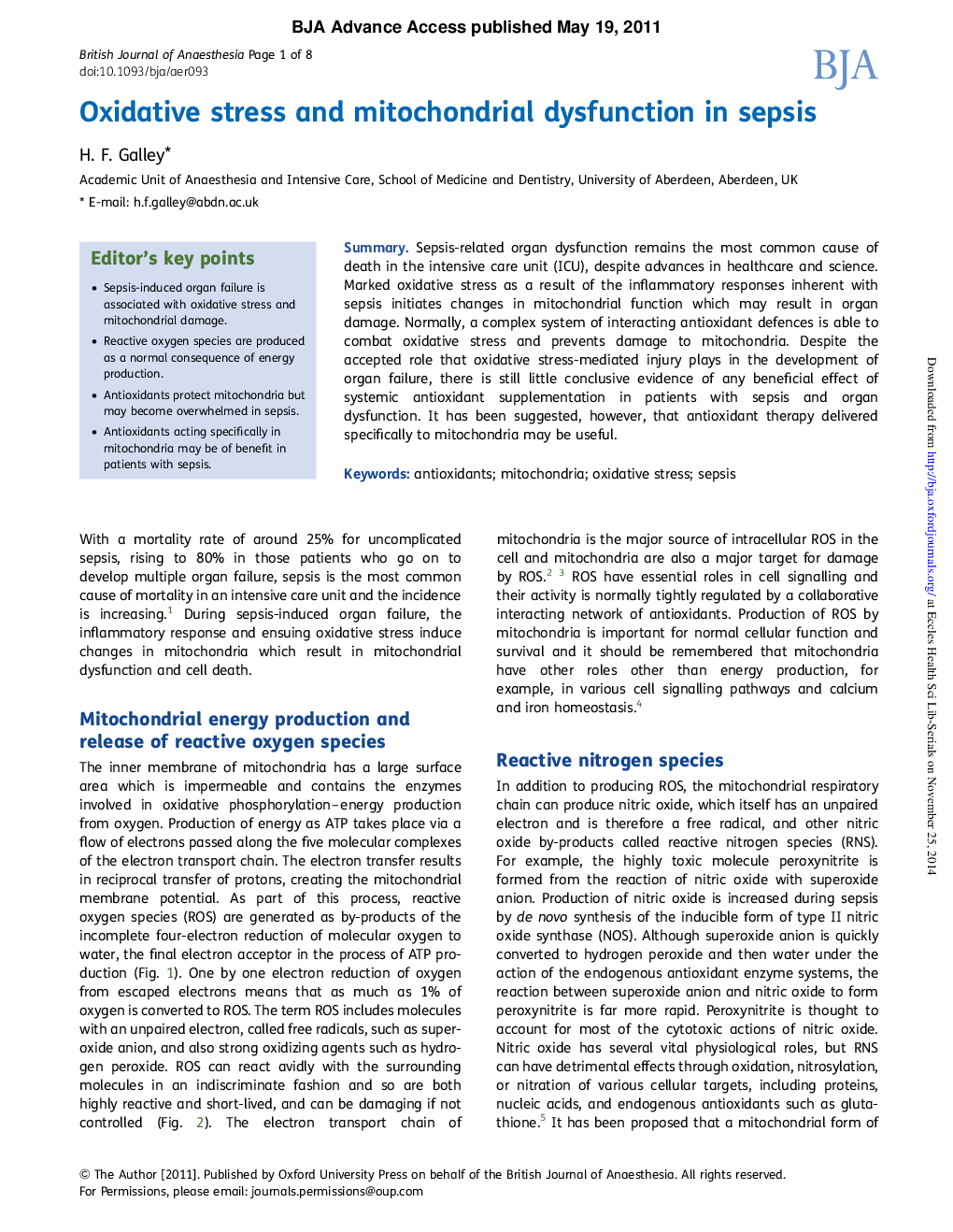| Article ID | Journal | Published Year | Pages | File Type |
|---|---|---|---|---|
| 8935779 | British Journal of Anaesthesia | 2011 | 8 Pages |
Abstract
Sepsis-related organ dysfunction remains the most common cause of death in the intensive care unit (ICU), despite advances in healthcare and science. Marked oxidative stress as a result of the inflammatory responses inherent with sepsis initiates changes in mitochondrial function which may result in organ damage. Normally, a complex system of interacting antioxidant defences is able to combat oxidative stress and prevents damage to mitochondria. Despite the accepted role that oxidative stress-mediated injury plays in the development of organ failure, there is still little conclusive evidence of any beneficial effect of systemic antioxidant supplementation in patients with sepsis and organ dysfunction. It has been suggested, however, that antioxidant therapy delivered specifically to mitochondria may be useful.
Related Topics
Health Sciences
Medicine and Dentistry
Anesthesiology and Pain Medicine
Authors
H.F. Galley,
